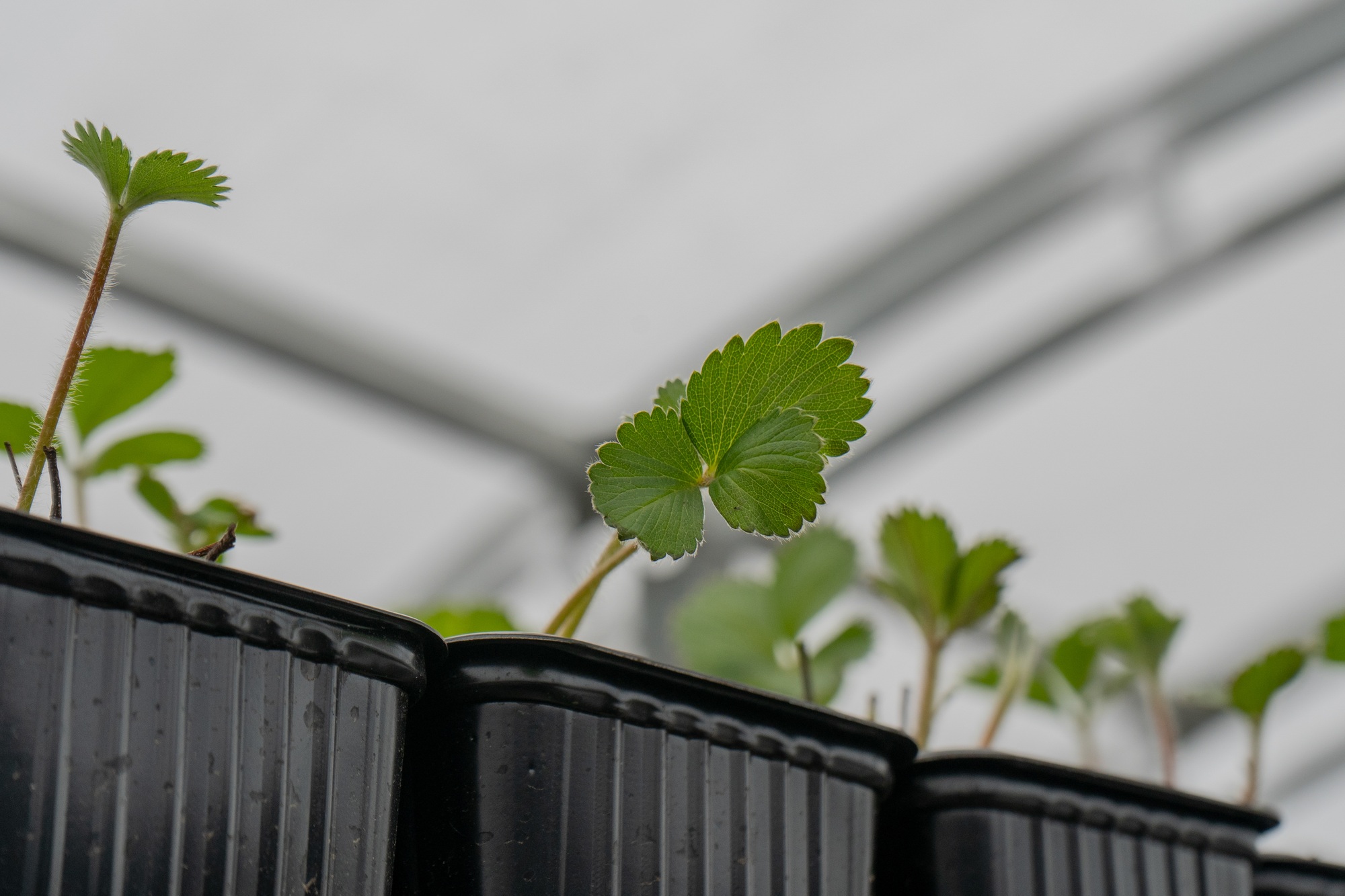Key Takeaways

- Diverse Farming Opportunities: Explore various types of farming, including crop, livestock, aquaculture, specialty farming, and agritourism, to tap into profitable market niches.
- Market Research is Key: Conduct thorough market research to understand local consumer preferences and identify profitable farming niches that can sustain your business.
- Financial Planning and Sustainability: Develop a solid financial plan to manage expenses and adopt sustainable practices that not only reduce costs but also attract eco-conscious consumers.
- Income Generation Strategies: Increase profitability through direct sales, value-added products, and agritourism initiatives that enhance community engagement and diversify income streams.
- Essential Skills for Success: Master agricultural knowledge and essential business skills to manage operations efficiently, optimize pricing, and effectively market your products.
- Utilize Resources and Technology: Access financial assistance options and leverage advanced farming technologies to improve operational efficiency and make informed business decisions.
Farming isn’t just about growing crops or raising livestock; it’s a viable way to make money and build a sustainable lifestyle. With the right strategies and a bit of creativity, you can transform your land into a profitable venture. Whether you’re a seasoned farmer or just starting out, there are countless opportunities waiting for you.
From organic produce to niche markets, the modern farming landscape is diverse and full of potential. You can tap into local demand, explore online sales, or even consider agritourism. If you’re ready to roll up your sleeves and dive into the world of farming for profit, this guide will show you how to cultivate success in your agricultural journey.
Understanding the Basics of Farming

Farming offers various opportunities to build a profitable small business. With the right knowledge and planning, you can transform your land into a source of income and financial stability.
Types of Farming to Consider
- Crop Farming: Growing vegetables, fruits, or grains for sale. This includes organic farming, which targets health-conscious consumers.
- Livestock Farming: Raising animals, such as chickens, cows, or pigs, for meat, milk, and eggs. This can provide multiple income streams through direct sales or value-added products.
- Aquaculture: Farming fish and other aquatic organisms in controlled environments. It caters to the rising demand for seafood while utilizing less land than traditional farming.
- Specialty Farming: Focuses on niche markets, like herbs, flowers, or mushrooms. This can attract high-value customers and reduce competition in your local market.
- Agritourism: Combining farming with tourism activities, such as farm tours, events, or workshops. This diversifies income sources and enhances community engagement.
Key Factors for Success
- Market Research: Understand local consumer preferences and identify profitable niches. Analyze trends to make informed decisions about crops or livestock.
- Financial Planning: Create a budget to manage expenses and investments effectively. Consider start-up costs, ongoing operational expenses, and strategies for financing.
- Sustainable Practices: Implement eco-friendly farming methods to improve efficiency. Practices like crop rotation and soil conservation can reduce costs and appeal to environmentally conscious consumers.
- Networking: Connect with local farmers, suppliers, and organizations. Build relationships to share resources and gain insights into successful practices within the community.
- Education and Training: Invest time in learning about different farming methods and technologies. Workshops, courses, and online resources can enhance your skills and adapt your business to changing conditions.
Ways to Generate Income from Farming

Farming offers diverse avenues for income generation, making it a viable option for your small business. Explore these strategies to maximize profitability.
Crop Production
Grow specialty crops like vegetables, organic produce, or herbs, which can yield higher prices in the market. Examples include organic vegetable farming, herb gardening, and cultivating gourmet mushrooms like lion’s mane, oyster mushrooms, and true morels. These crops attract health-conscious consumers and command premium prices.
Create value-added products from your crops, such as jams, pickled items, or baked goods. These offerings can fetch prices above raw crops, enhancing your revenue. For instance, an organic lavender farm can produce lavender-infused jams, body butters, and tasty snacks, appealing to a niche market looking for unique, handcrafted items.
Engage in direct sales by selling your crops through farmers markets, farm shops, or community-supported agriculture (CSA) programs. This approach boosts profitability by eliminating the wholesale distribution chain. According to the 2022 Census of Agriculture, farms sold $17 billion directly to consumers, indicating significant potential for revenue growth in this area.
Livestock Farming
Consider raising livestock for meat, dairy, or eggs, as this branch of farming provides steady income. Examples include chickens for eggs, goats for milk, and cattle for beef. Establishing a small-scale livestock operation can lead to reliable sales, especially in local markets.
Diversify your livestock offerings by providing niche products, such as organic poultry or grass-fed beef. These products cater to consumer demand for sustainable and healthy options, allowing you to charge premium prices. Connecting with local restaurants seeking fresh ingredients can further enhance your business’s profitability.
Engage in agritourism with livestock by offering farm tours, petting zoos, or animal experiences. This venture can attract visitors while creating additional revenue streams, complementing your traditional farming income.
Agro-Tourism Opportunities
Capitalize on the growing trend of agro-tourism to generate income from your farming operation. By creating unique experiences such as farm stays, workshops, or hayrides, you can draw in a diverse audience while promoting your products.
Host events like seasonal festivals or pick-your-own crop days that encourage community involvement and boost foot traffic on your farm. This initiative not only increases direct sales but also strengthens your brand’s visibility in the local market.
Partner with local businesses for collaborative events to reach a broader audience and share the financial benefits. Aligning your farm with nearby attractions or services can create a synergistic relationship that fosters growth and sustainability in your small business.
Essential Skills for Successful Farming

Successful farming requires a blend of essential skills that enhance efficiency and profitability. Mastery of these skills can help you optimize your operations and maximize your income.
Agricultural Knowledge
Comprehensive agricultural knowledge is fundamental. You need to understand crop life cycles, animal care routines, and sustainable practices. Familiarity with watering, fertilization, pest management, and disease control improves your yield and quality. Knowledge of soil health and climate conditions plays a crucial role in selecting appropriate crops or livestock, directly impacting your finance decisions. Continuous education on evolving agricultural techniques ensures your practices remain current, which can significantly increase your market competitiveness.
Business and Marketing Skills
Strong business and marketing skills are vital for generating profit from your farming operation. Managing finances effectively allows you to monitor expenses, optimize pricing, and create budgets that support your small business goals. Implementing marketing strategies promotes your products, whether through local farmer’s markets, online platforms, or direct-to-consumer sales. Networking with other small businesses can expand your reach and enhance partnerships, driving growth. Utilizing social media and websites to showcase your offerings helps attract more customers and generate consistent revenue streams.
Resources and Tools for Farmers

Accessing the right resources and tools significantly enhances farming efficiency and profitability.
Financial Assistance Options
Explore various financial options for your farming business. Small business loans, grants, and government assistance programs can provide the necessary capital for startup costs and ongoing expenses. The U.S. Small Business Administration (SBA) offers loan programs tailored for farmers, like the Microloan Program, which provides up to $50,000 for smaller agricultural operations. Check local agricultural cooperatives for grant opportunities that support innovative practices, sustainability efforts, and niche market development.
Farming Technologies
Utilize advanced farming technologies to streamline operations and increase yield. Precision agriculture tools, such as GPS-guided tractors and soil sensors, optimize resource use for higher efficiency. Mobile apps can aid in managing crops, tracking finances, and facilitating communication along the supply chain. Additionally, consider investing in farm management software that integrates data analytics for financial planning and market analysis, enabling better decision-making and improved profitability.
Conclusion

Farming offers you a pathway to financial independence and a fulfilling lifestyle. By tapping into your creativity and utilizing the strategies discussed, you can transform your land into a thriving business. Remember to stay informed about market trends and continuously enhance your skills.
Embrace the opportunities that modern farming presents, whether it’s through specialty crops or agritourism. With dedication and the right resources, you can cultivate not just crops but a sustainable future for yourself. Your journey in farming can be both profitable and rewarding, so take the first step today and watch your efforts flourish.
Frequently Asked Questions

What are the different types of farming I can consider?
Farming offers several options, including crop farming, livestock farming, aquaculture, specialty farming, and agritourism. Each type allows for unique income opportunities and market interactions, depending on your interests and resources.
How can I make my farming venture profitable?
To increase profitability, focus on market research to understand consumer preferences, balance financial planning, implement sustainable practices, network with local farmers, and invest in ongoing education to adapt to new trends and methods.
What skills are essential for successful farming?
Successful farming requires strong agricultural knowledge, understanding crop life cycles and animal care. Additionally, business and marketing skills are crucial for managing finances, developing effective marketing strategies, and engaging with customers on social media.
How can I generate income from farming?
Income can be generated through various channels like crop production of specialty crops, producing value-added products, direct sales to consumers, livestock farming, and offering unique experiences through agritourism.
What resources are available to support new farmers?
New farmers can access resources like small business loans, grants, and government programs such as the U.S. Small Business Administration’s Microloan Program. Additionally, utilizing advanced farming technologies can improve efficiency and decision-making.
Why is market research important in farming?
Market research helps farmers understand consumer preferences and local demand, allowing them to tailor their offerings effectively. This understanding is key to developing profitable farming strategies and identifying the best products to sell.
What role does sustainable farming play in profitability?
Sustainable farming practices enhance efficiency and reduce costs over time. By implementing these methods, farmers can improve soil health, conserve resources, and attract eco-conscious consumers, all contributing to long-term profitability.
Image Via Envato



